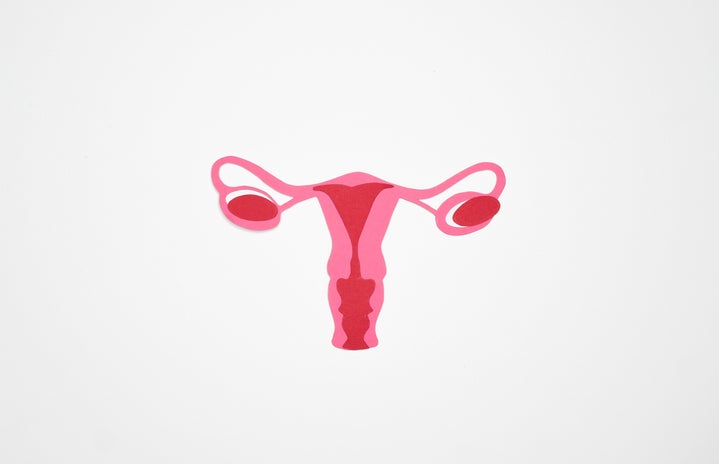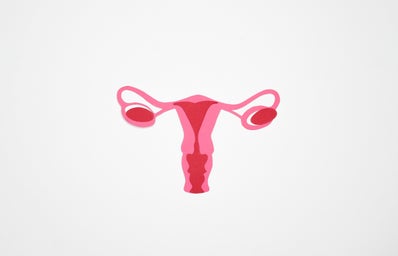Endometriosis affects 1 in 10 women who are of reproductive age in the UK, but yet there is little education in sex education in schools and there are few open discussions about the impact for those involved despite it being the second most common gynaecological condition In the UK. In this article, I want to not only provide information about what endometriosis is and why it is important to learn about but to also provide a sense of comfort for anyone reading this going through this experience that they are in fact not alone and people do care as shown that 10% of women worldwide live with endometriosis.
So, what is endometriosis?
For those who may not know or have a little understanding of endometriosis, it is a condition where cells that are like the ones found in the uterus are found elsewhere in the body. However, unlike the cells in the uterus which can break down and leave the body through menstruation, the cells linked to endometriosis break down and bleed with nowhere to go. Regardless of your race or ethnicity, endometriosis can affect anyone from puberty to menopause, but it is important to address that endometriosis is not an infection, it is not contagious, and it is not cancer but a chronic illness that should be taken seriously which currently has no cure. This is because endometriosis can have a significant impact on an individual’s life such as long term chronic pain, depression, inability to conceive, impact on relationships and social commitments so no you’re not just having a painful period which outsiders try to imply.
You’re not imagining it:
As said before, many women are often told that the pain and difficulties they are facing are all in their head, they probably have a low pain threshold and are experiencing a painful period. Firstly no, if you notice that you’re experiencing high amounts of pain during periods, during or after sex, excessive fatigue and pelvic pain go and get checked out! Don’t let doctors or others try and silence what you’re experiencing and don’t stop pushing until you’re heard. Unfortunately, many women are faced with silence when trying to seek help for a possible endometriosis diagnosis, often because it is still being learnt about and there is no cure for it. Endometriosis also manifests differently for those who suffer from it and can share symptoms with other conditions making it difficult to give an official diagnosis, on average it is around 8 years between women first seeking medical help about their symptoms and receiving a firm diagnosis. The length of time to receive a diagnosis is an issue for endo sufferers as during this time feelings of depression and isolation can occur, alongside the fact that endo can impact how individuals are able to engage with studies, work and social life all the while contributing to feeling as though they’re making it all up in their head or being dramatic. Again, you’re not imagining things and do not give up until you receive that diagnosis. Once a firm diagnosis has been given, women with endometriosis are offered treatment options that include keyhole surgery, hormone treatment and certain pain relief. Many women have shared the fact they’ll use heat pads or hot water bottles in an attempt to levitate some of the pain they endure.
Personal experiences:
Although it is important to talk about exactly what endometriosis is and how it presents itself for those who may be experiencing symptoms, I also wanted to capture personal experiences and advice from those who have received a diagnosis to emphasise the fact that as a woman your feelings are valid! For confidentiality, I have hidden the names of the women who came forward to talk about their experience and one of the main questions I asked them was what advice they would give to their younger selves at the start of their endometriosis journey. One key theme that arose was those surrounding their mental health and wellbeing during this time.
Person A said that they would tell their younger self “to not take no as an answer because my health is the most important thing I have”, and that “every push is worth it to get the treatment… even if it takes 8 years”.
Person B expressed that wish to tell their younger self and whoever else is going through the same that “this ‘invisible’ illness and pain is real. The issue is medical, social and political, not of our minds”.
Person C went through surgery for their endometriosis and was originally put on the wrong contraceptive pill at the start of their journey, they expressed that “a lot could have been avoided if they had actually listened to my needs in the first place”. They also wanted to express to others that “despite the surgery, this is a lifelong illness”.
This is just a small selection of women who suffer from endometriosis speaking about their experience, but there is an emphasis on the fact that women should be openly talking about it to not only raise awareness but also to share comfort and normality of what is going on for their mental health and wellbeing.
Pushing the endo conversation:
If you or someone you’re close to suffers from endometriosis or is experiencing symptoms connected to it, please seek help and communicate your thoughts and the pain you’re experiencing. Women need to support women in order to be heard by the wider majority which enables a push for change. Earlier diagnosis is needed, as well education in schools about what endometriosis is to stop so many women suffering in silence. Share Instagram posts on endometriosis, sign petitions even if it doesn’t affect you personally you may be helping a friend or a family member who is sitting in silence. For further advice and support on endometriosis, this charity is very useful. Women with endometriosis are normal, beautiful and strong individuals who deserve to be listened to.
I would like to give a personal thank you to the individuals who came forward to talk about their experiences.


